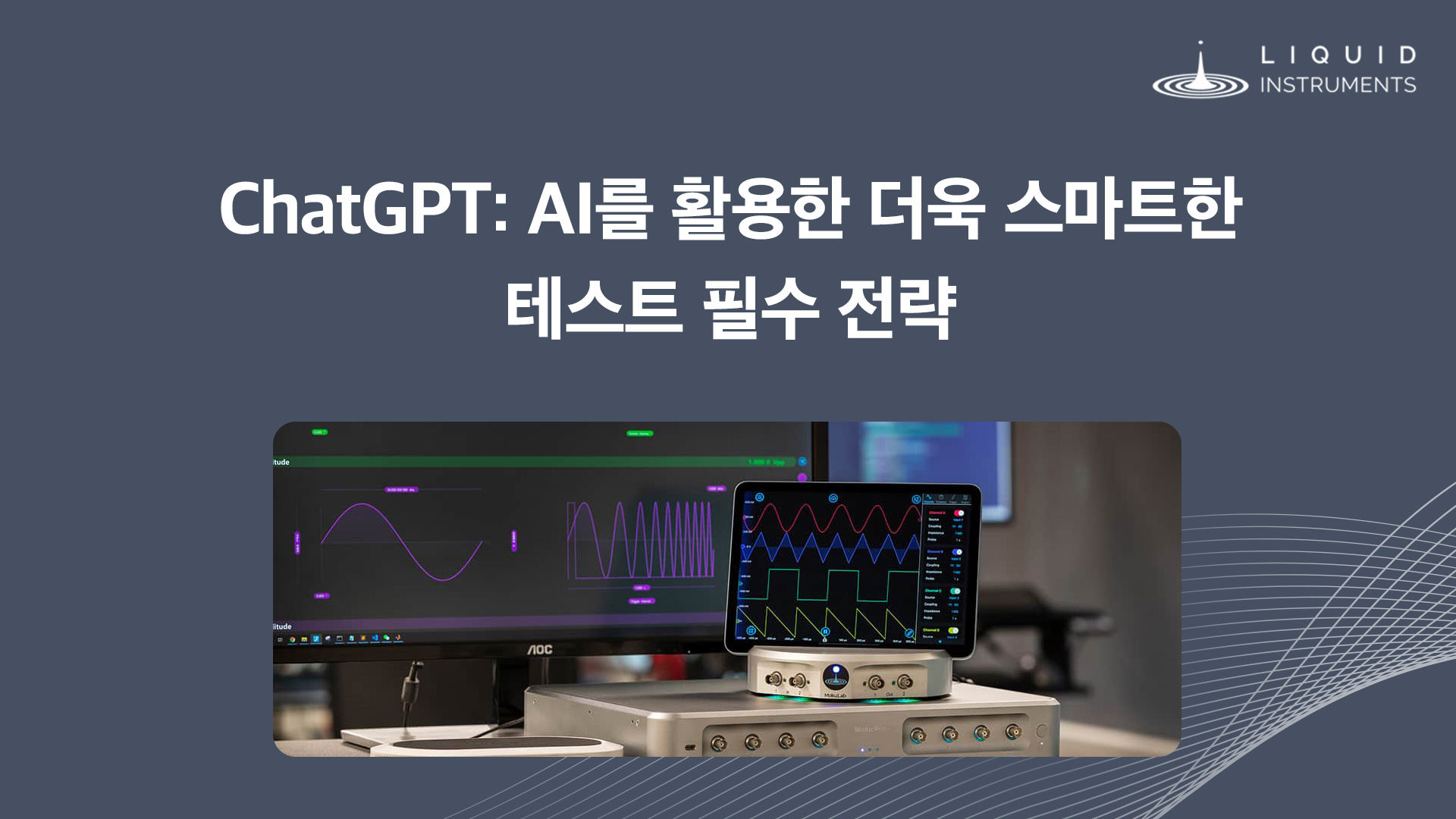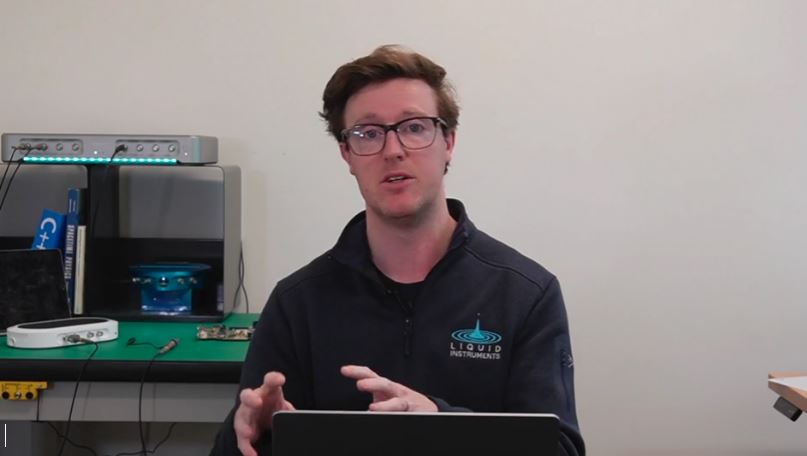VHDL과 같은 HDL(Hardware Description Languages)은 숙련하기 매우 어렵다. 반면 이는 디지털 설계에서 FPGA의 컴퓨팅 성능을 활용하는 데 필수적이기에 개발자들을 위한 간소화 솔루션에 대한 요구가 시장에 존재했다. 이에 챗GPT와 같은 AI 언어 모델을 이용해 필요한 사양을 만들거나 기능을 정의하고, 요구사항에 부합하는 VHDL 코드를 생성하는 방법론과 예제가 웨비나를 통해 공개됐다.

▲ 최근 e4ds EEWebinar에서 발표한 ‘ChatGPT: AI를 활용한 더욱 스마트한 테스트 필수 전략’ 웨비나
리퀴드인스트루먼트, Moku·챗GPT로 코드 생성
프로젝트 타임라인 가속화·프로그래밍 손쉬움 高
VHDL과 같은 HDL(Hardware Description Languages)은 숙련하기 매우 어렵다. 반면 이는 디지털 설계에서 FPGA의 컴퓨팅 성능을 활용하는 데 필수적이기에 개발자들을 위한 간소화 솔루션에 대한 요구가 시장에 존재했다.
이에 챗GPT와 같은 AI 언어 모델을 이용해 필요한 사양을 만들거나 기능을 정의하고, 요구사항에 부합하는 VHDL 코드를 생성하는 방법론과 예제가 웨비나를 통해 공개됐다.
리퀴드인스트루먼트(이하 리퀴드)가 최근 e4ds EEWebinar에서 ‘ChatGPT: AI를 활용한 더욱 스마트한 테스트 필수 전략’을 주제로 웨비나를 진행했다.
테스트 및 측정에서 사용되는 FPGA는 고속 프로세싱의 장점과 더불어 △맞춤형 설계 △유연성 △신뢰성 등에서 그 필요성을 인정 받고 널리 활용되고 있다.

▲벤 니지트(Ben Nizette) 리퀴드인스트루먼트 제품 디렉터가 발표하는 모습(캡처:e4ds EEWebinar)
벤 니지트(Ben Nizette) 리퀴드인스트루먼트 제품 디렉터는 챗GPT와 Moku Cloud Compile의 기능을 결합 활용해 원하는 기능의 설계를 대폭 간소화하는 맞춤형 하드웨어 솔루션 제작 방법과 예제를 설명했다.
챗GPT를 이용해 VHDL을 생성하는 방법과 △신호 리미터 구현하기 △이벤트 카운터 구현하기 △파이썬을 VHDL로 변환하기: sqrt(x) 등 예제를 공유했다.
‘프롬프트→조정→복사→구축’의 과정으로 각 단계를 설명했으며, 챗GPT가 작성한 코드를 Moku Cloud Compile에 복사하기만 하면 된다. 비트스트림을 Moku Cloud Compile에 구축하고 이곳에서 해당 VHDL을 편집하고 프로그램을 개선할 수 있다.
VHDL 작성 전문가가 아니더라도 Moku에서 제공하는 13개의 소프트웨어 정의 계측기를 자유롭게 이용할 수 있을 것이다. 이는 FPGA, 고정밀 임베디드 계측기, 휴대용 하드웨어로 테스트 기능을 확장할 수 있는 계측기의 가능성 확대를 의미한다.
리퀴드는 이러한 예제들은 일부에 불과하다며 시간을 절감하는 간단한 프로그램에서부터 복잡한 프로토타입을 수정하거나 자신의 설계를 반복하는 것까지, 각기 다른 프롬프트와 방법론을 통해 얼마든지 다양한 생성이 가능하다고 피력했다.
벤 니지트 디렉터는 “향후 챗GPT 버전에서는 스크린샷으로도 업로드할 수 있으며 오류가 발생한 위치도 알려줄 수 있을 것으로 확신한다”며 “Moku Cloud Compile와 챗GPT를 일상적인 테스트 시나리오에 유용하게 사용할 수 있다”고 말했다.
